Submitted by WA Contents
Snøhetta completes elliptical planetarium and observatory in northern France
France Architecture News - Aug 02, 2023 - 10:30 2524 views
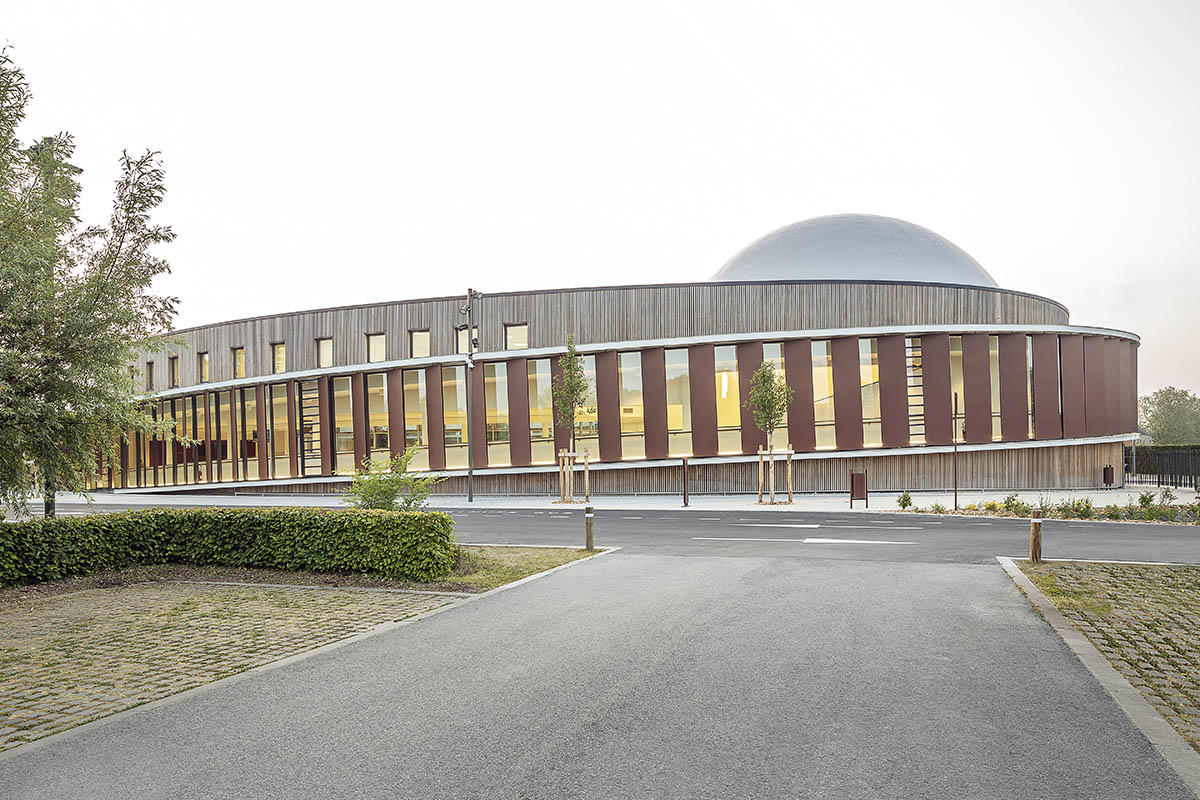
Snøhetta has completed a planetarium and observatory in nothern France, inspired by the elliptical and continuous movement of the stars.
Called Orionis, the new building is added as a new cultural destination to the city of Douai, which fosters a continuous movement within the building.
Situated on a remarkable site, between the adjacent Scarpe river, the archaeological museum Arkéos and a nearby residential complex, Orionis aims to harmoniously connect these elements and create an accessible and inspiring space for visitors.
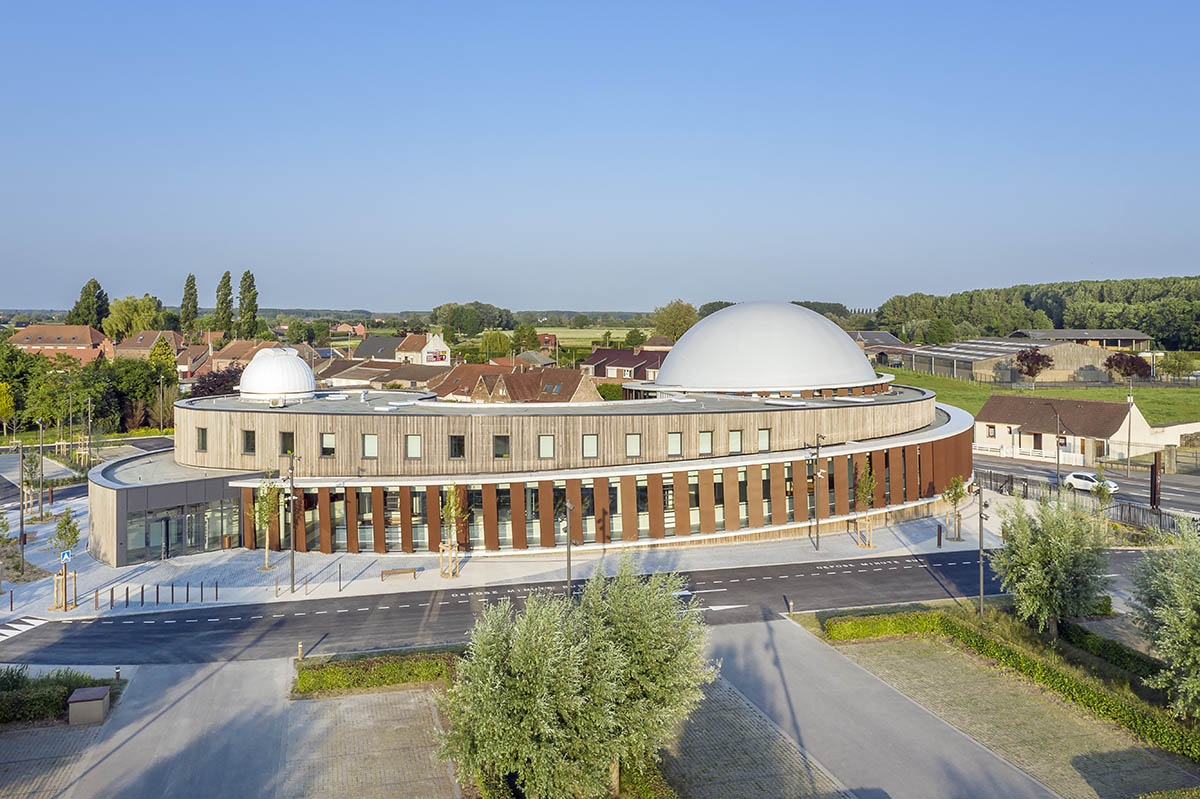
Snøhetta creates a compact volume shaped by curves that are wrapped around the two domes. One of th domes serves as a projection room, and the other functions as an observatory.
Opened to the public in May, Snøhetta worked with in close collaboration with CET Ingénierie, Impact Conseil et Ingénierie, Cicanord, Studio Dap and Atelier Silva Landscaping. The team has been working on the project since late 2019, from the conceptual stage to construction.
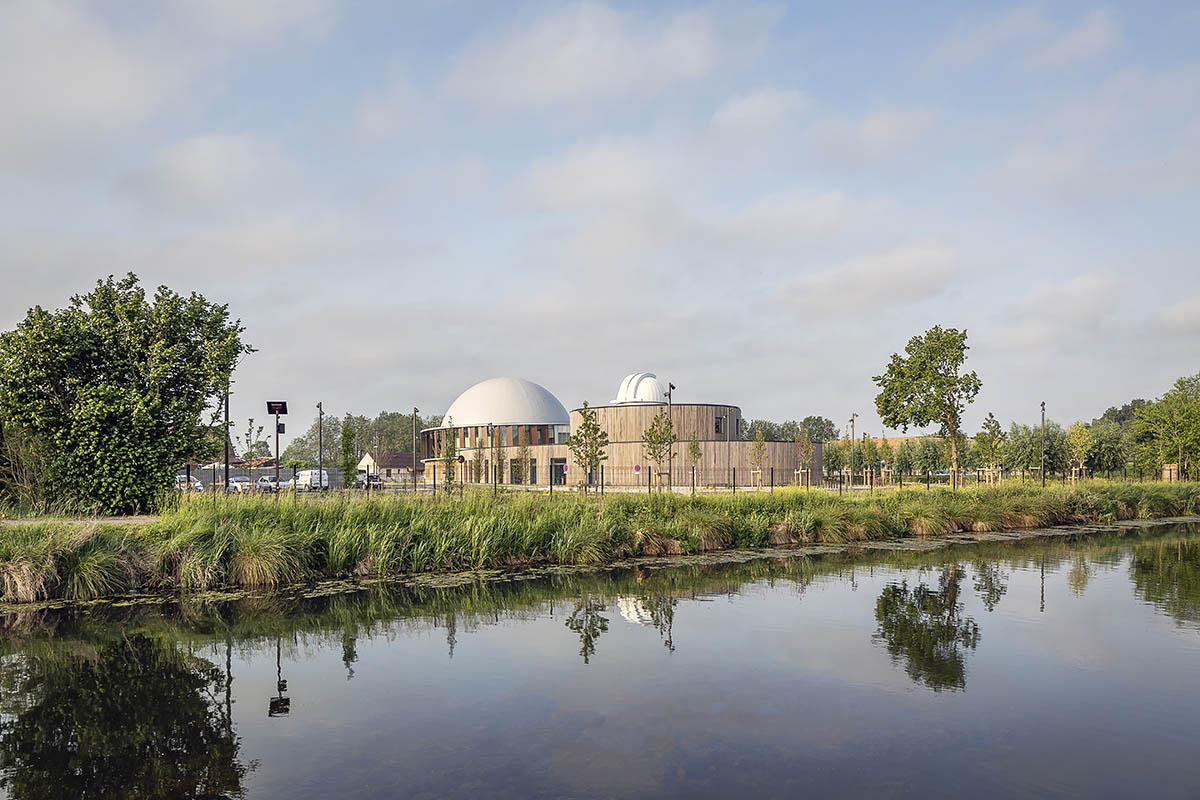
"The Planetarium is one of the first projects to be completely conceived, managed and built by Snøhetta’s studio in Paris. We are extremely excited to showcase the Snøhetta approach for delivering high-quality cultural and educational buildings in France," said Oliver Page, Managing Director of Snøhetta’ studio in Paris.
Snøhetta used an ellipse to create a timeless and fluid concept. According to the firm, the concept of continuous movement defines everything and is felt in every space from the reception area, the exhibition spaces, the amphitheater, and the domes of the building.
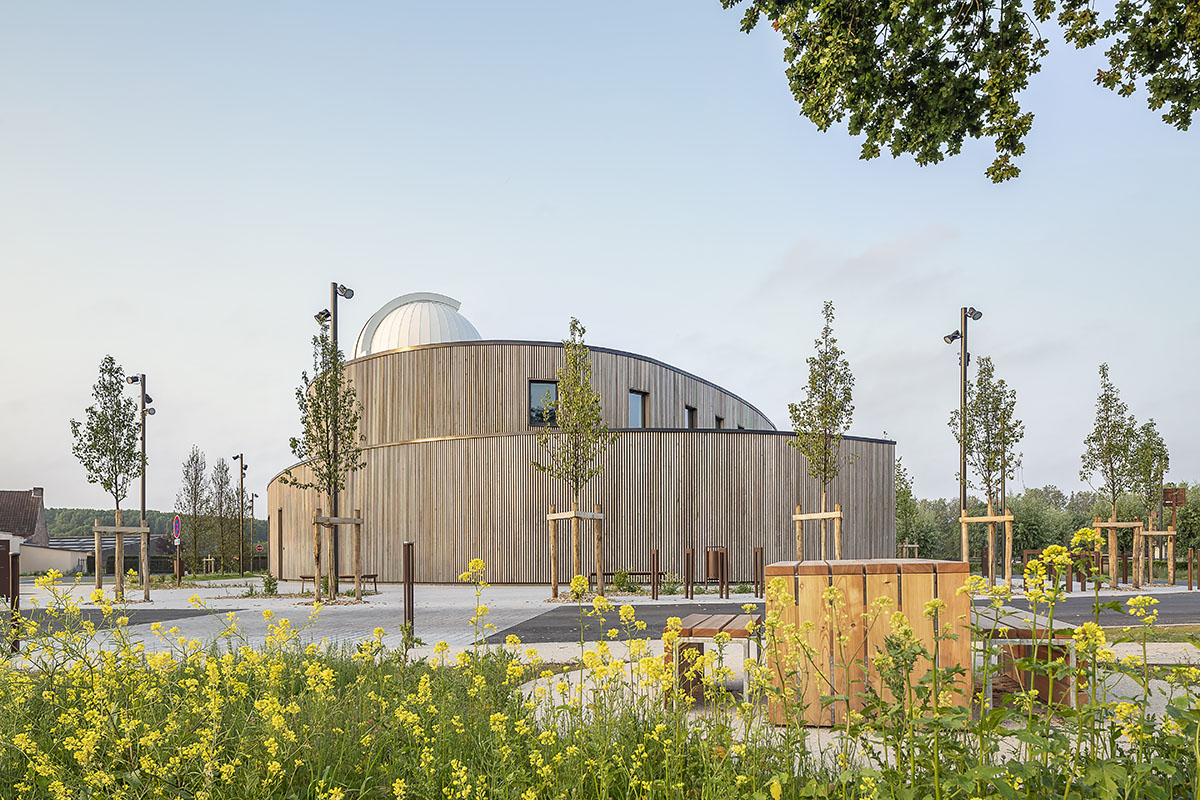
A slightly inclined ramp, climbing to the larger dome housing the projection room, is visible from the outside through the building’s partly translucent façade.
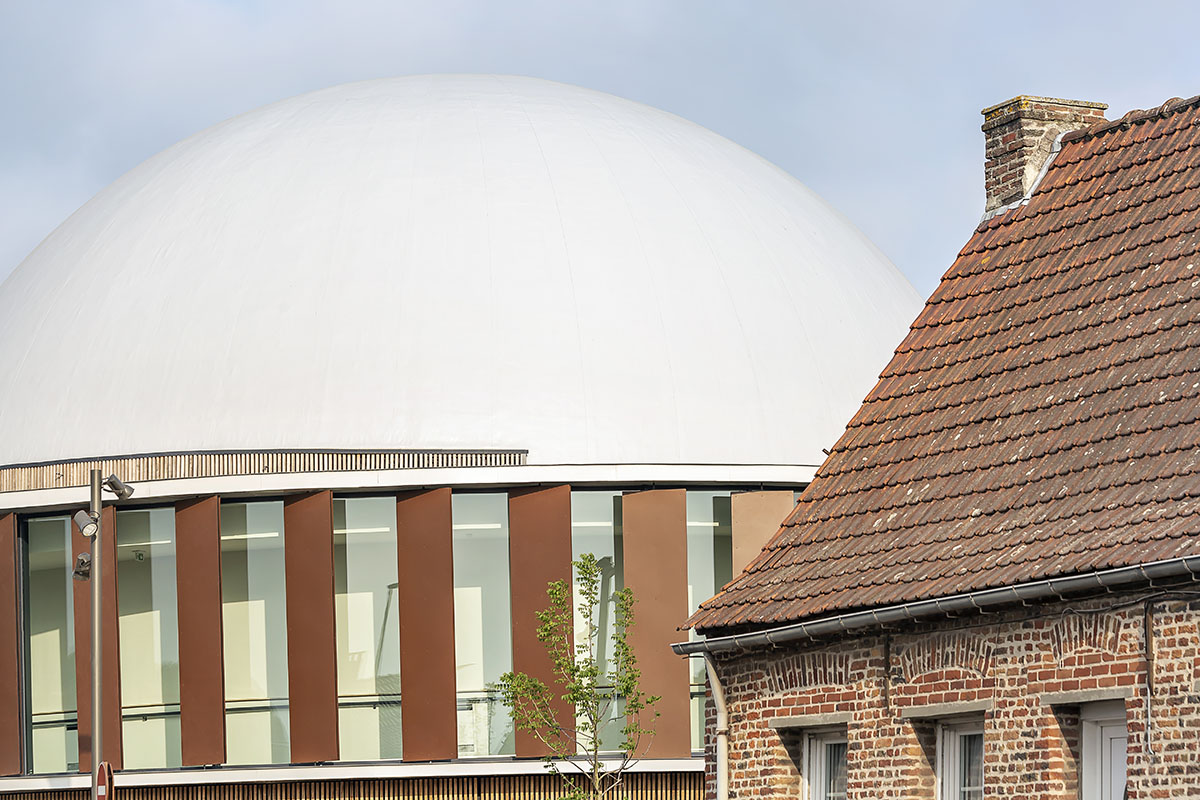
"We wanted to propose an extraordinary meeting place and a new destination for the inhabitants of Douai. The architectural and urban concept of our project takes its inspiration from the elliptical movement of the stars," said Kjetil Trædal Thorsen, co-founder of Snøhetta.
"Being continuous, fluid and perpetual are notions that we have reinterpreted in the project, not only in terms of the shape but also in the experience that visitors will have of the planetarium, all senses employed," Thorsen added.
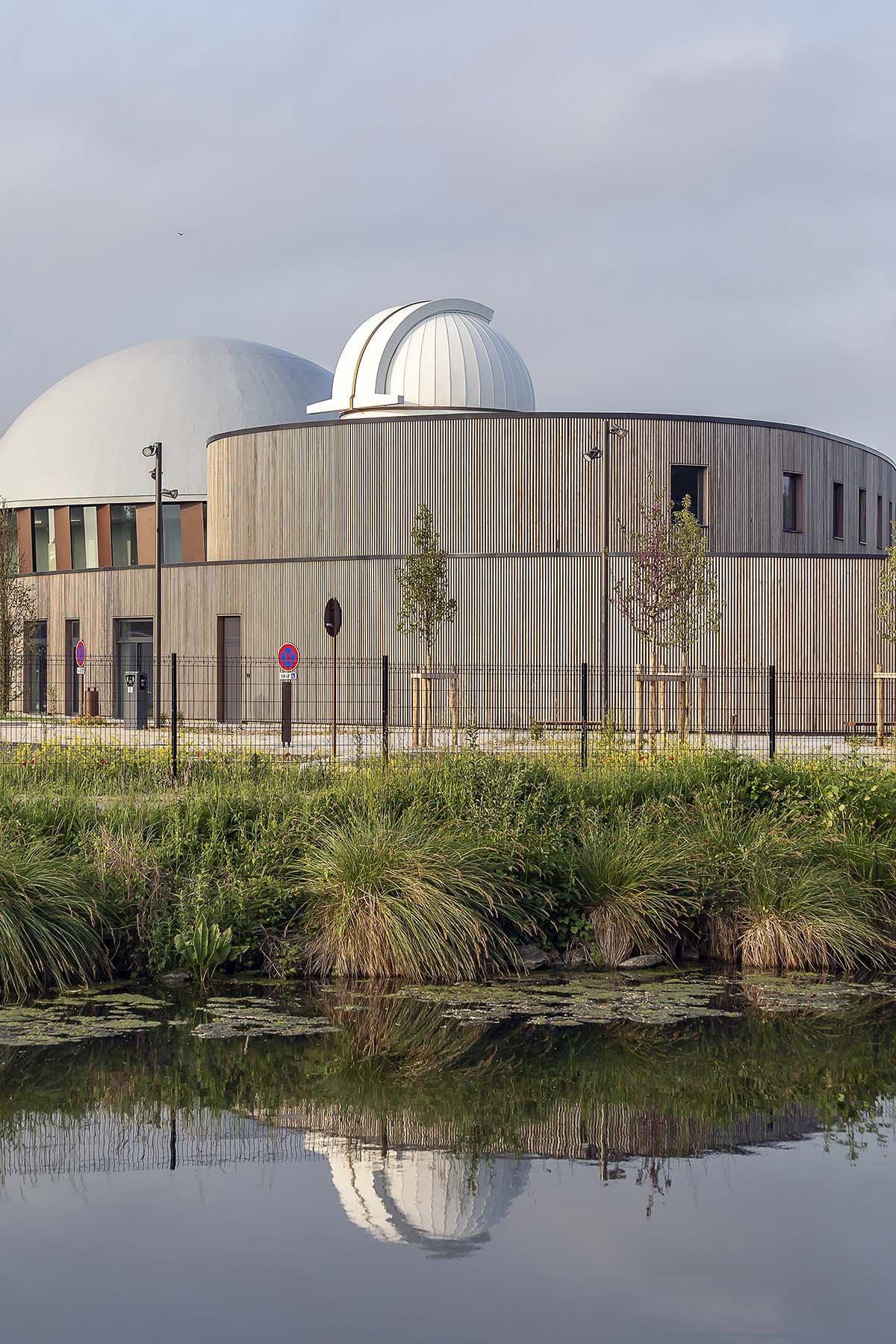
Integrated into the local environment
"The notion of timelessness is also found in the continuous movement of the Scarpe river and the surrounding landscape that weaves a physical and visual link to the planetarium," said Snøhetta.
"It is designed to integrate seamlessly with the Arkéos Museum and shares landscaped areas and parking lots intended to connect these two cultural entities."
The firm wanted to show the two domes to be "a visual signal that can be seen from afar while not impacting the local neighborhood."
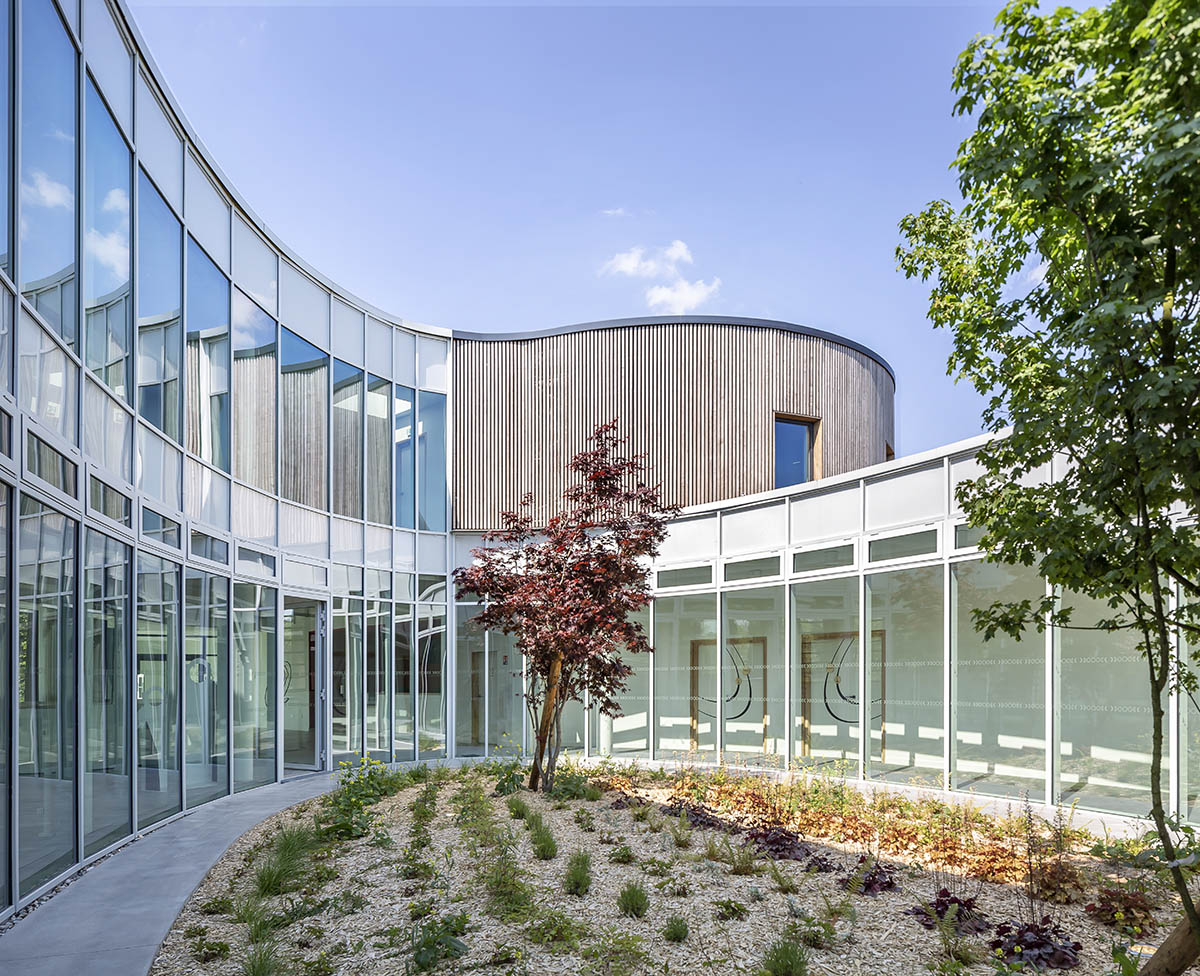
The goal of the project was to reveal the building’s program and function from the exterior through its shapes.
The outdoor spaces are shaped around two distinct characters; the surrounding landscape and an elliptical interior courtyard.
"Both help to create a coherent and contextualized cultural destination that takes advantage of the outstanding features of the site while integrating seamlessly with the surrounding landscape," the studio said.
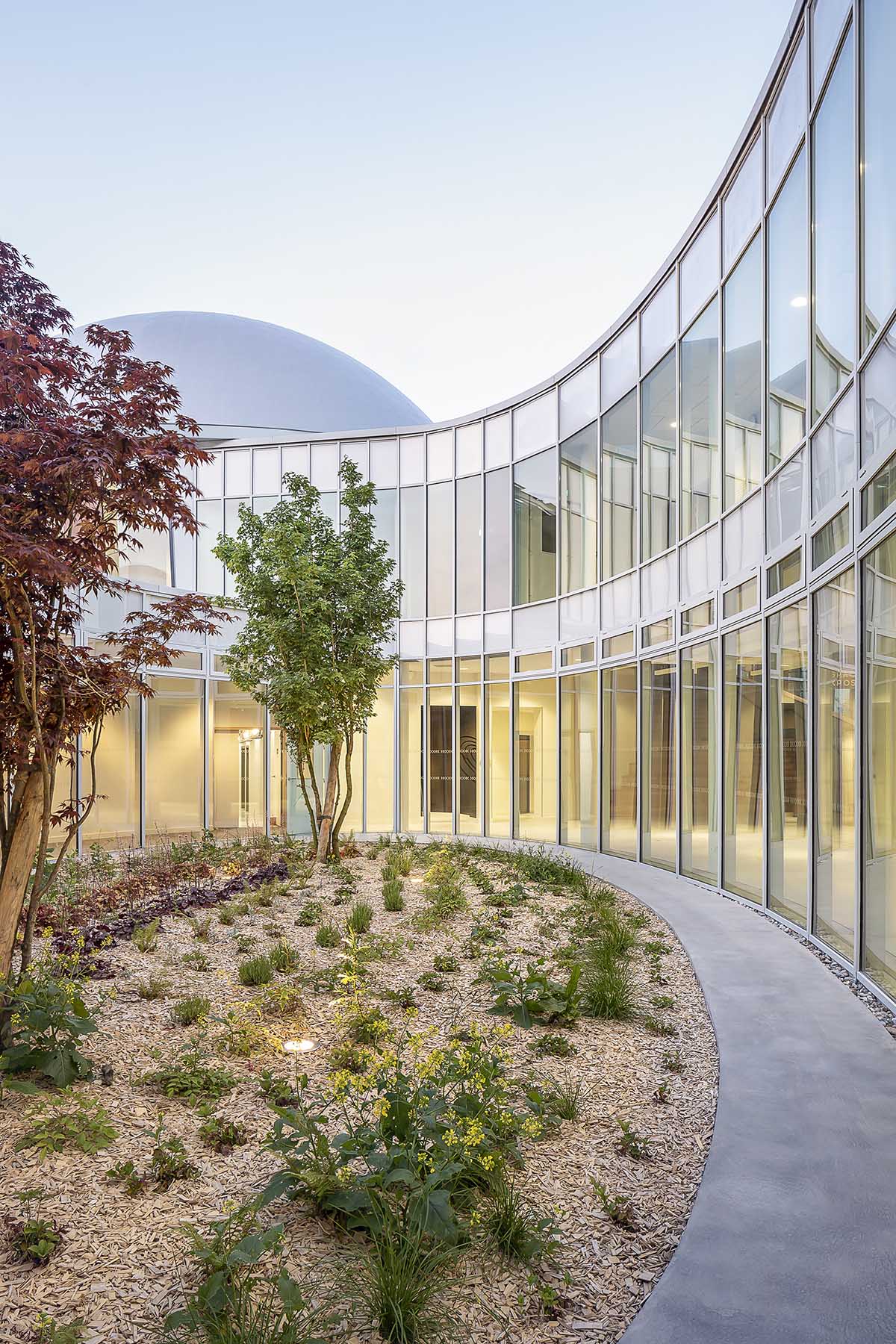
French firm Atelier Silva Landscaping aimed to promote biodiversity and integrate the materials present on the site. "The garden has a continuous pathway that connects various outdoor spaces and the building," said the firm.
"The path is paved with natural bluestone from Belgium, providing an additional layer of texture and visual expression. Also, plants and trees are strategically placed to integrate the parking spaces and the forecourt."
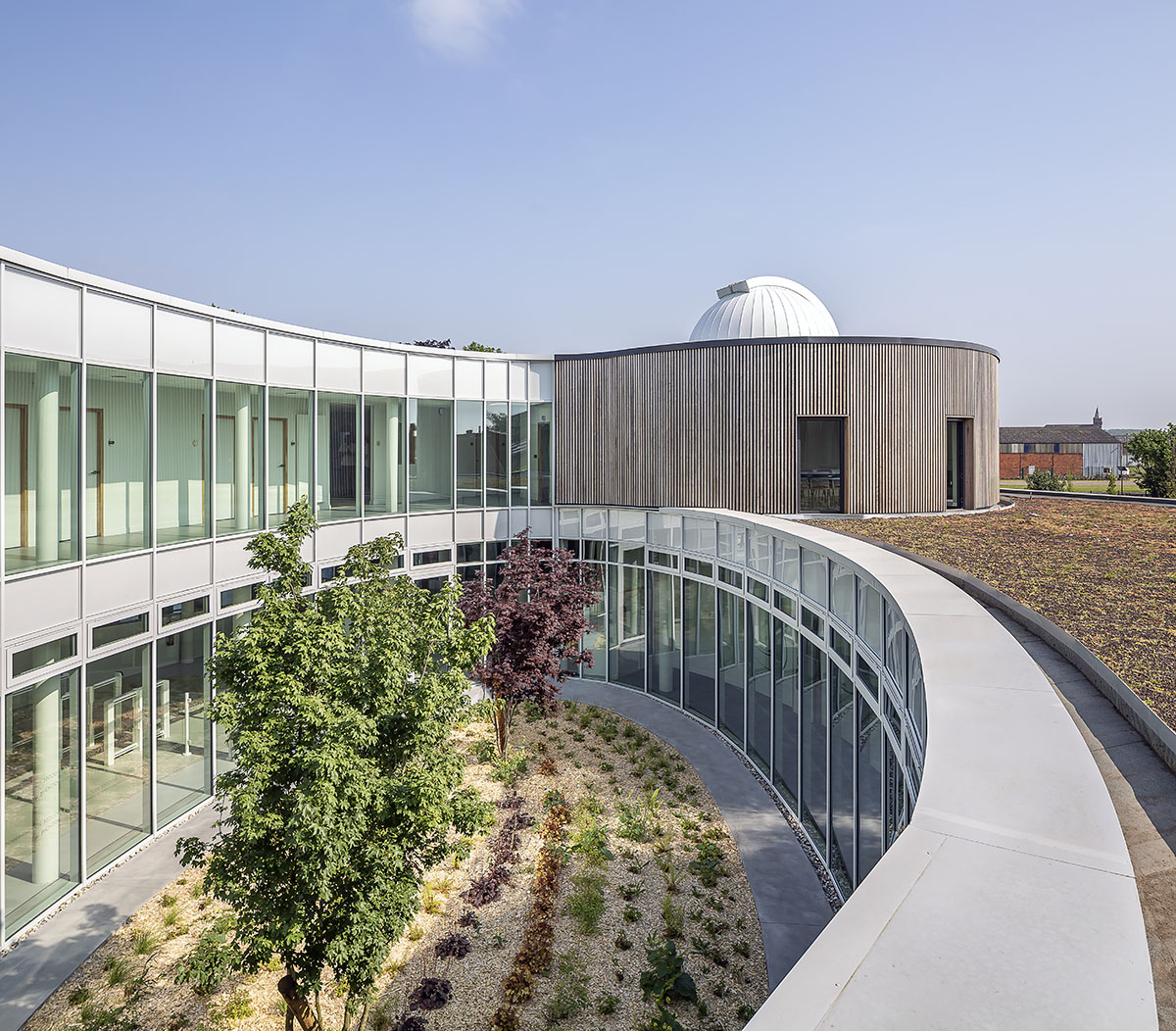
On the other hand, the roof is planted with wild grass, aiming to create a natural and organic visual element that is highly visible inside the building.
Once inside the building, the planted and glazed patio is visible from all interior spaces and works as a calm outdoor space, providing a connection to the natural landscape outside.
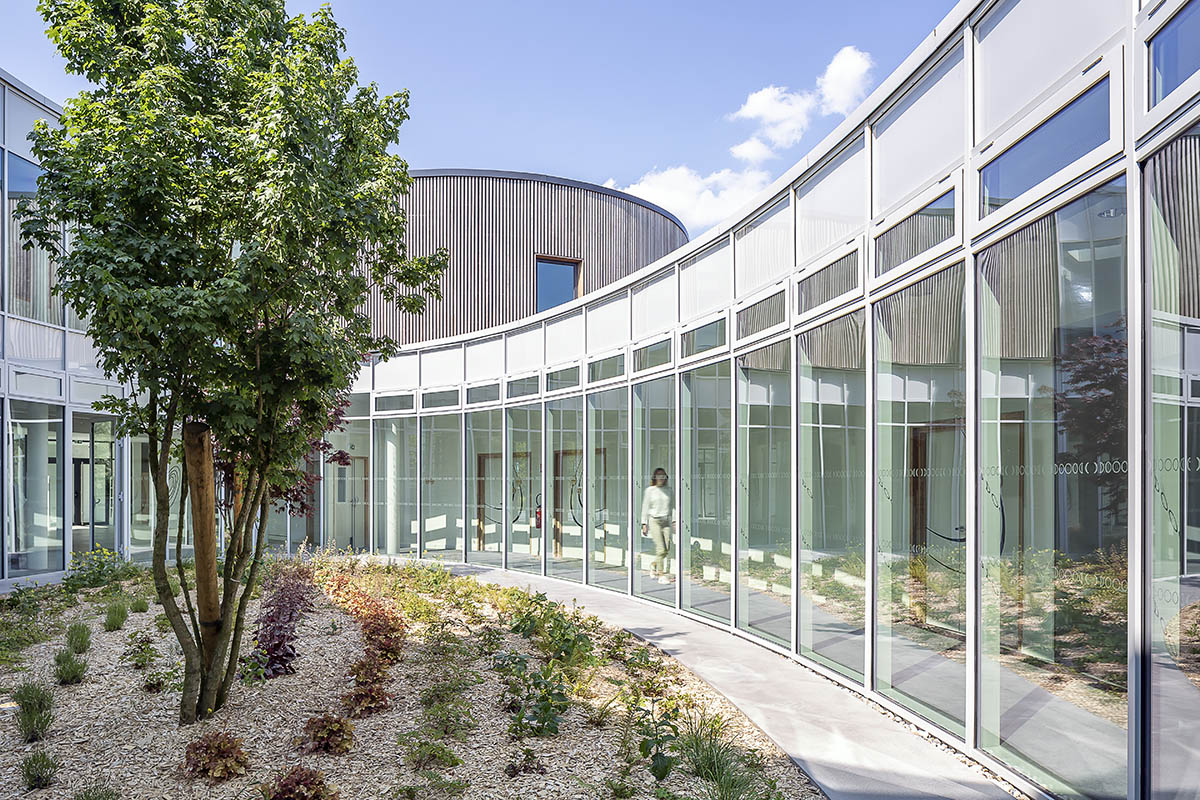
Snøhetta takes users at the heart of the project
Addressing the needs of the many users, the building is maintaining a sense of coherence and continuity with the overall theme of the planetarium.
"The visitor circuit flows smoothly from the entrance, through the gift shop and exhibition space, all the way to the immersive room. Then, the ramp gently brings the audience back down to the ground floor and towards the exit," Snøhetta added.
Specific areas were given a dedicated access to ensure that the flows do not intersect, such as the observatory area and offices on the first floor.
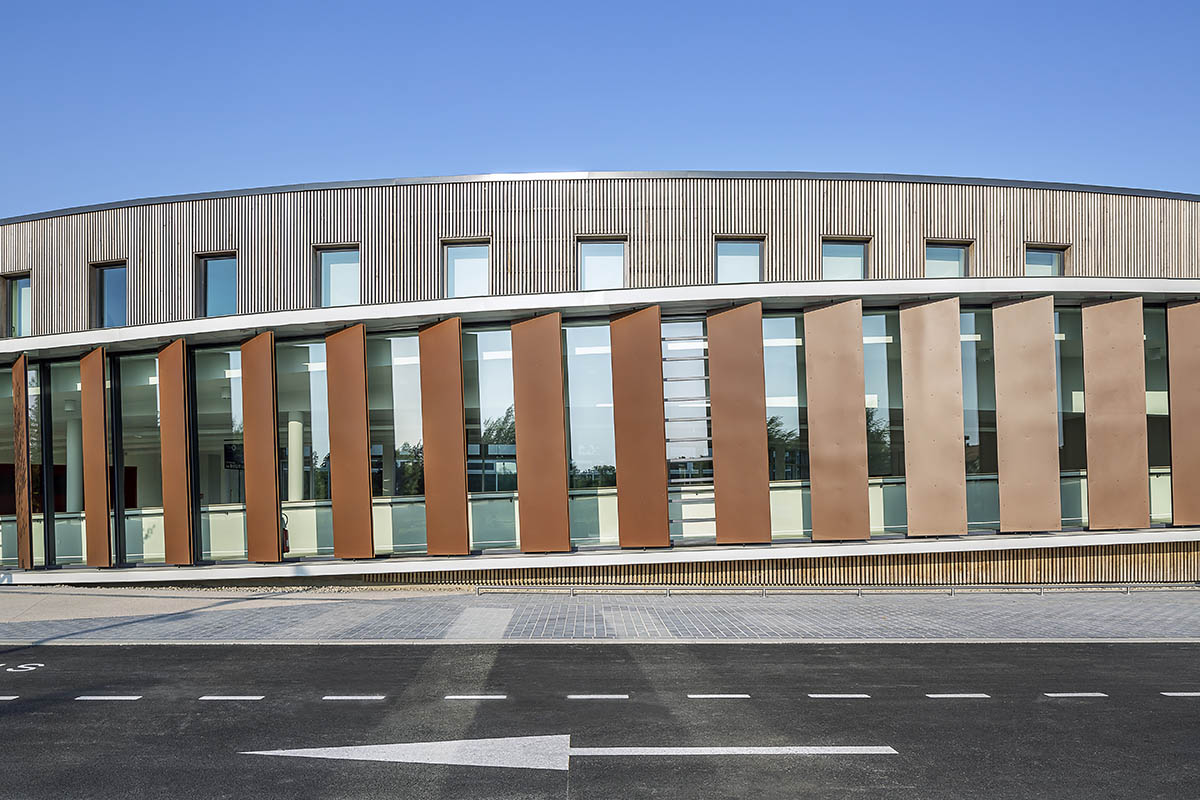
Inspired by the surrounding region, Snøhetta wrapped the exterior envelope of the planetarium with the materials used in nearby buildings such as the Arkéos Museum and brick houses.
"The project is composed of three main colors: the evolving wood color of the poplar, the rust color of the steel brise-soleils, and the light gray PVC membrane that covers the dome of the projection room," the firm added.
"The color of the steel panels in front of the curtain walls on the main façade and wood siding, both inspired by the Arkéos Museum, contribute to a cohesive design that blends with the environment."
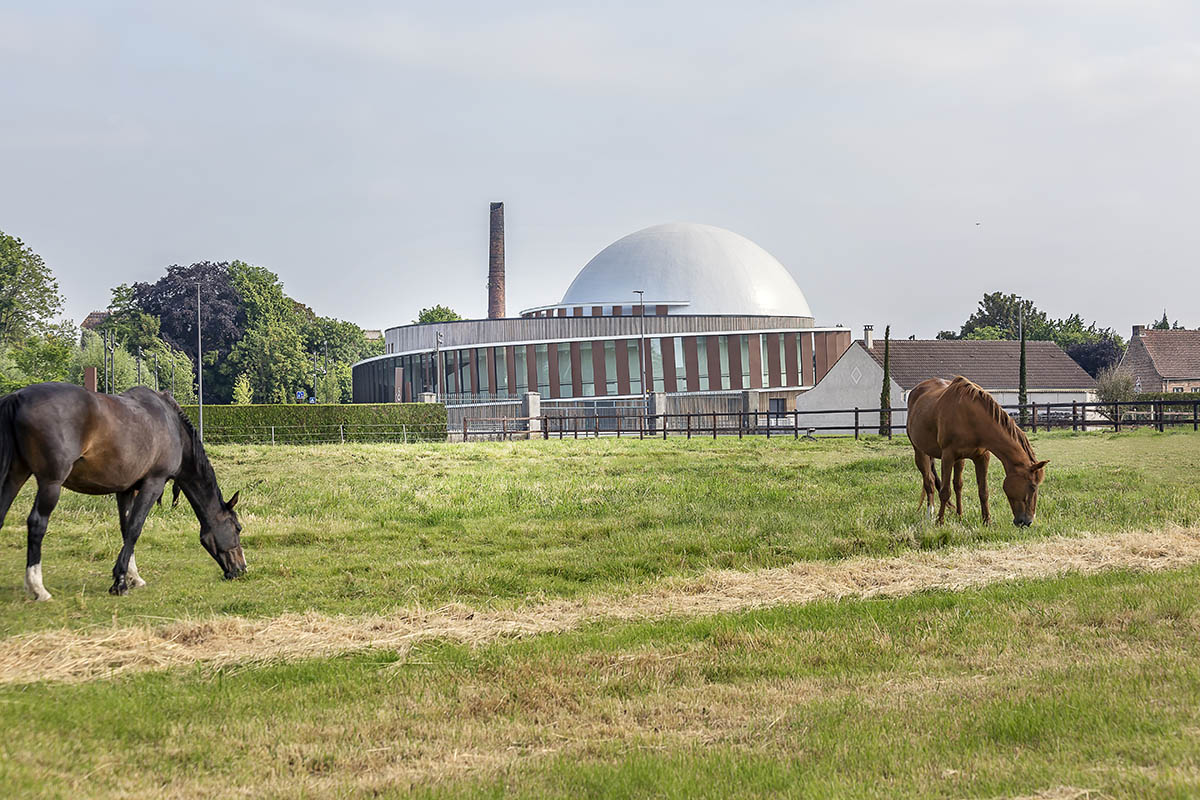
The screening room dome was covered with a light gray PVC membrane, reducing its visual impact and enhancing the path of the ramp that winds around the façade.
Paying attention to sustainability principles, the heating for the showroom's floor is supplied by geothermal energy, and it provides heating for the building during the winter and cooling during the summer.
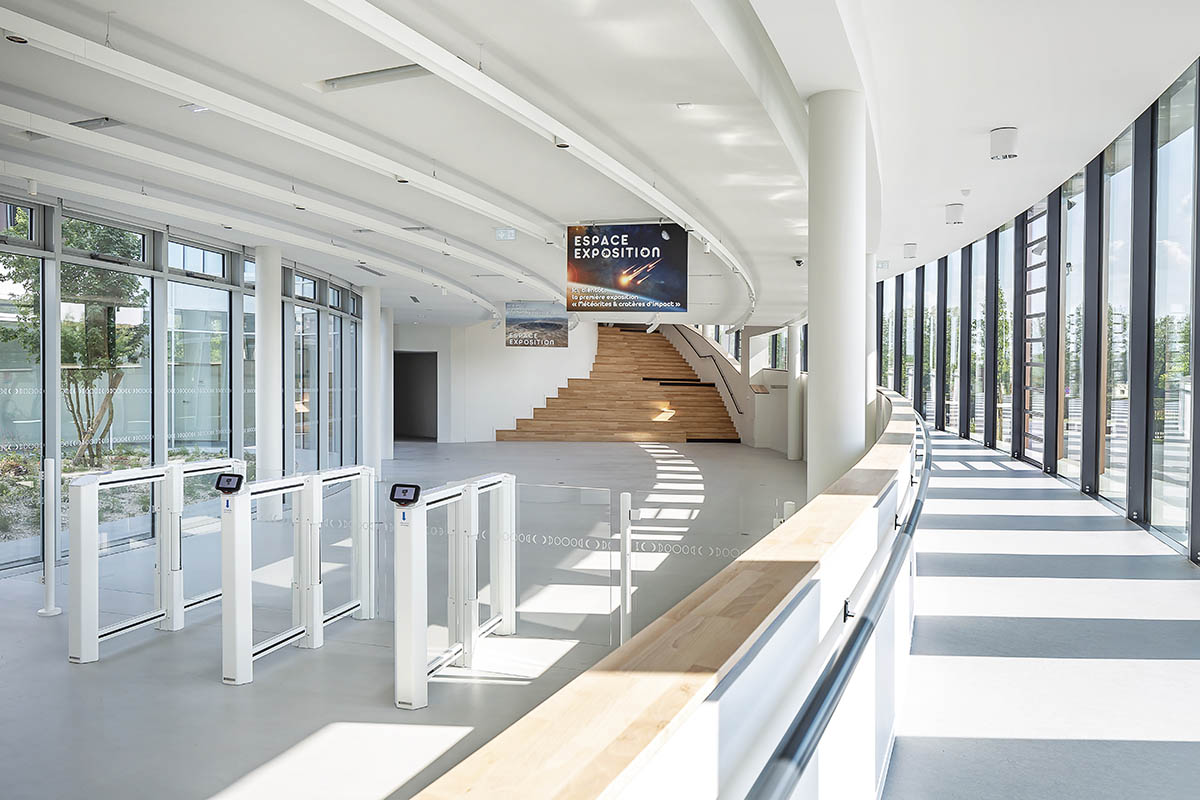
Sensors, installed on multiple openings to allow for intelligent natural ventilation, sunshades, the green roof are also elements that contribute to a responsible regulation of the building's temperature and rainwater.
The firm used locally sourced materials to limit the carbon footprint and allow for a low environmental impact construction site.
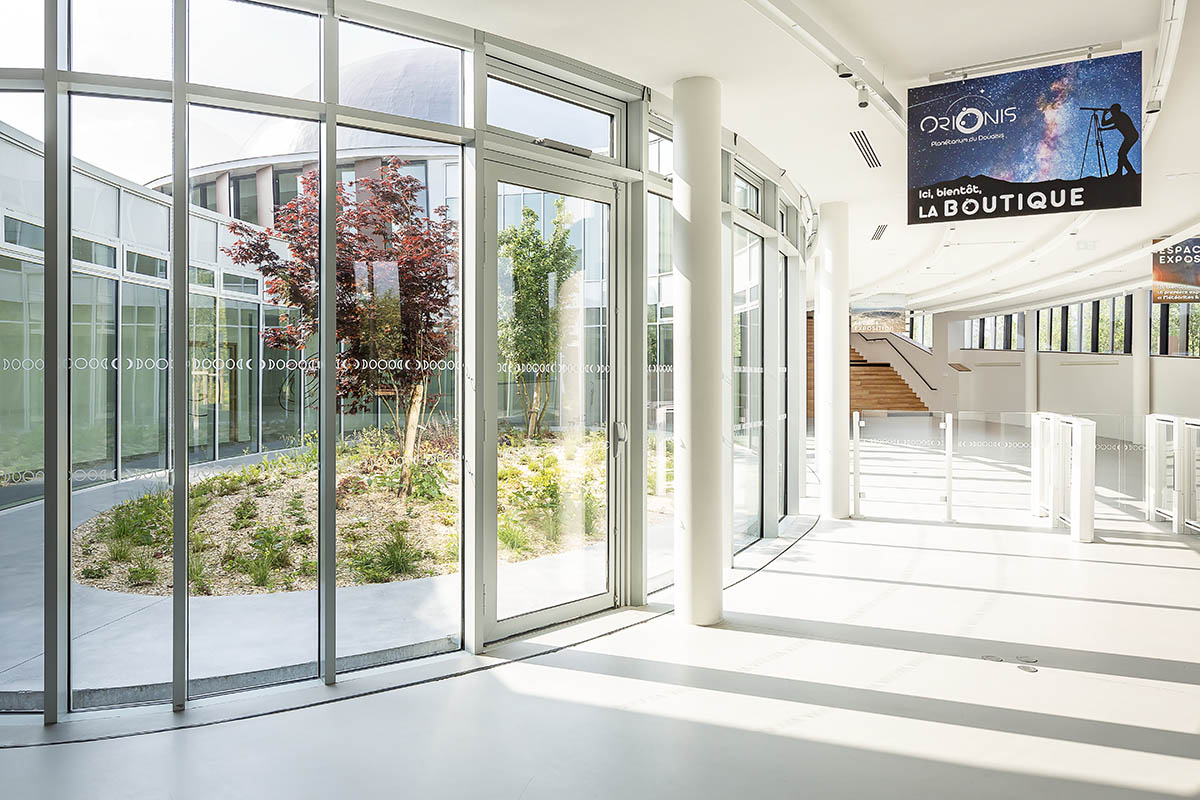
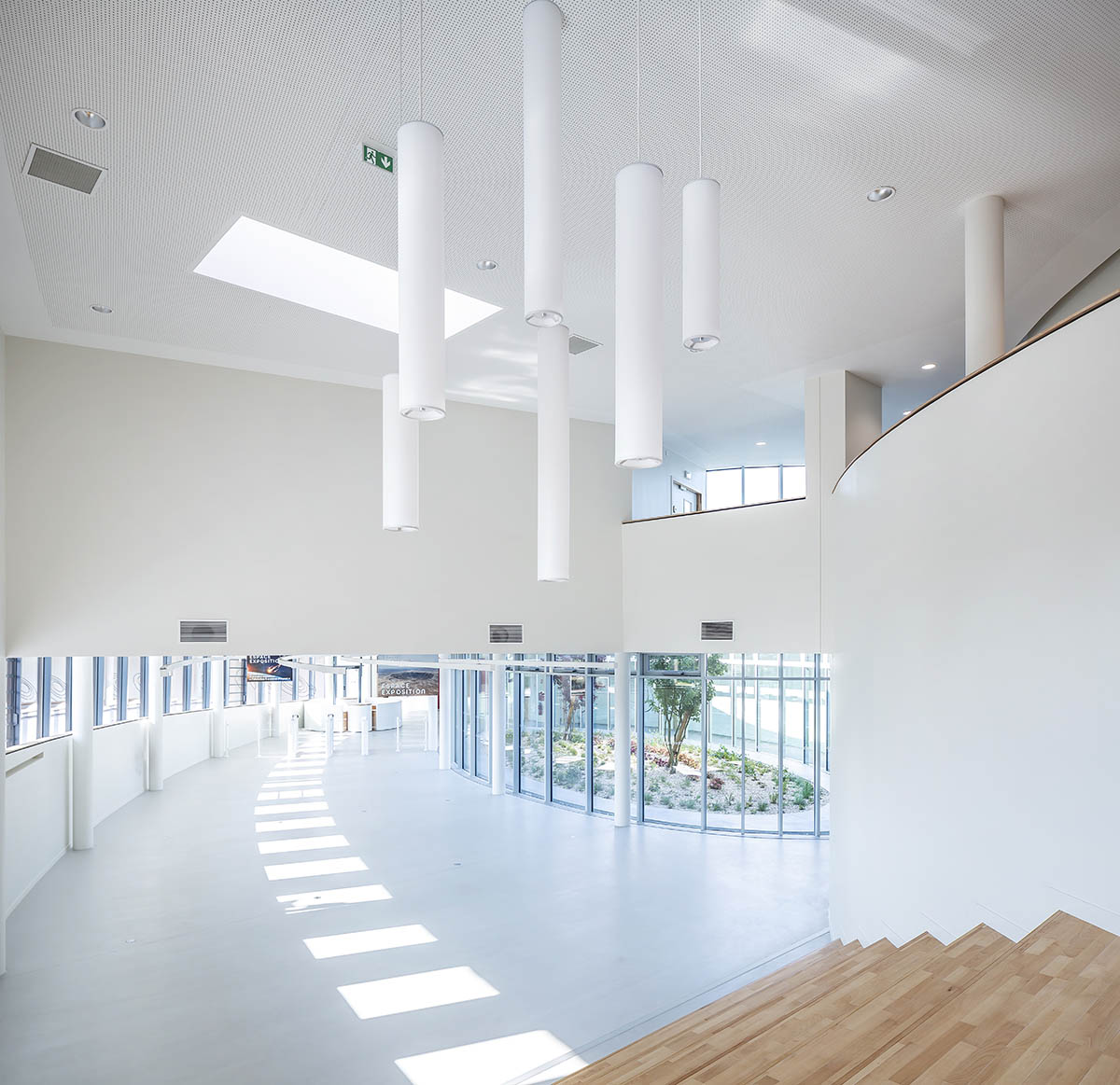
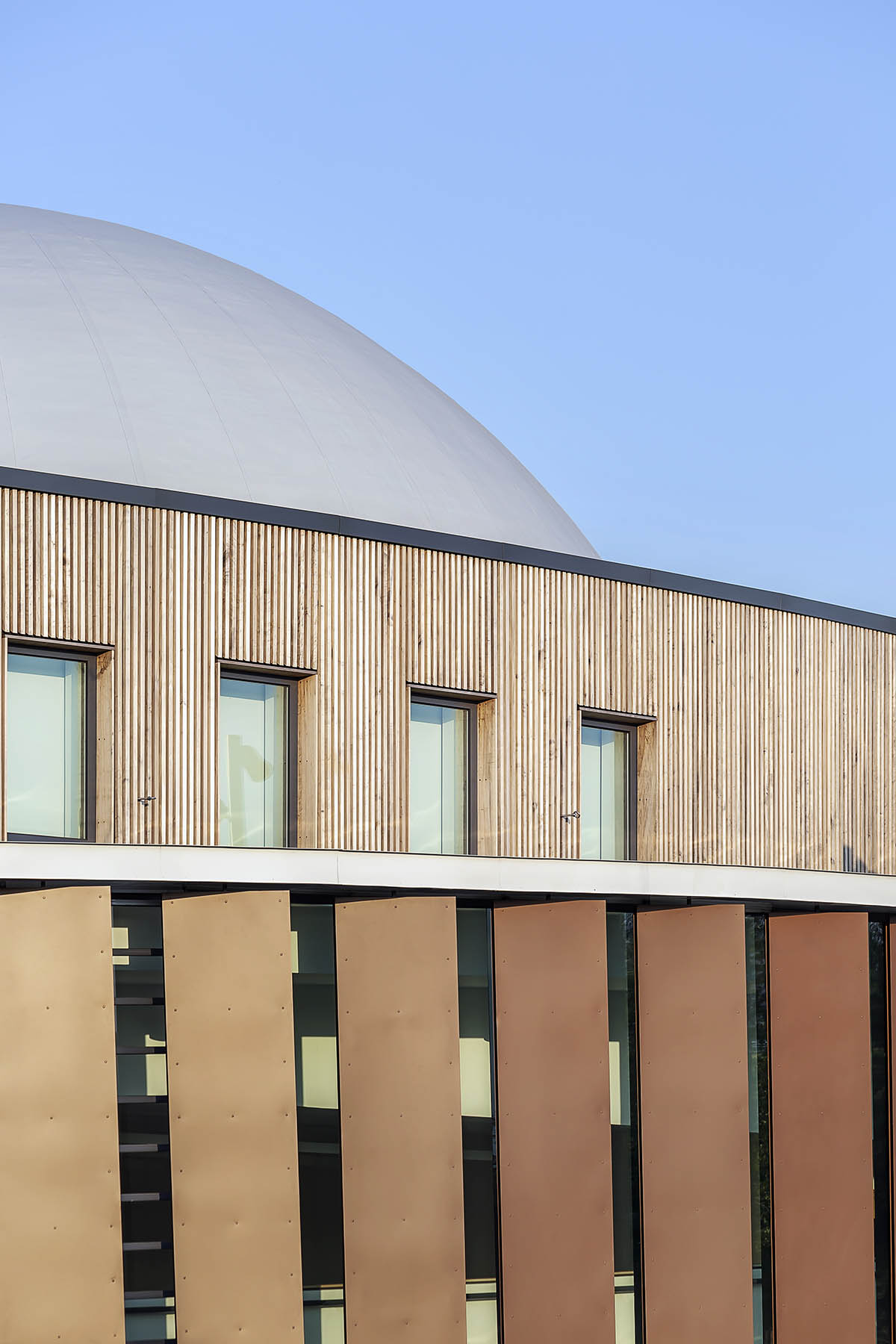
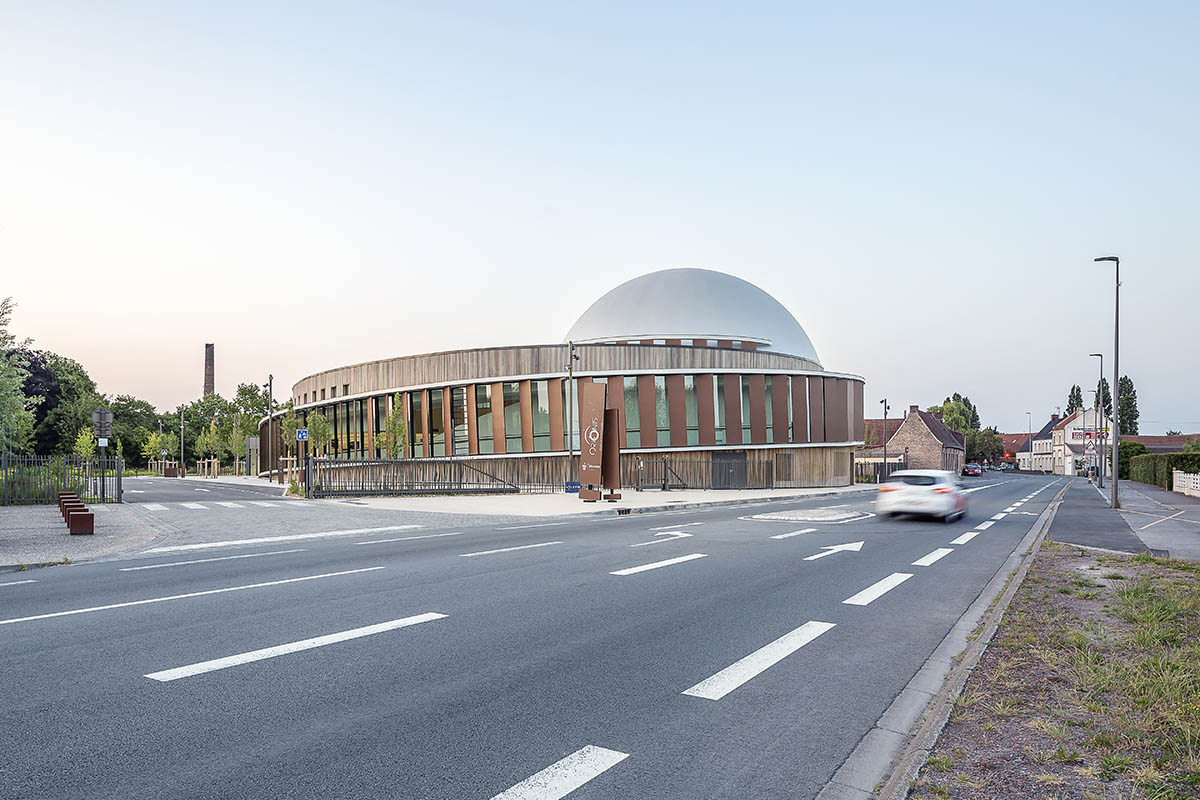
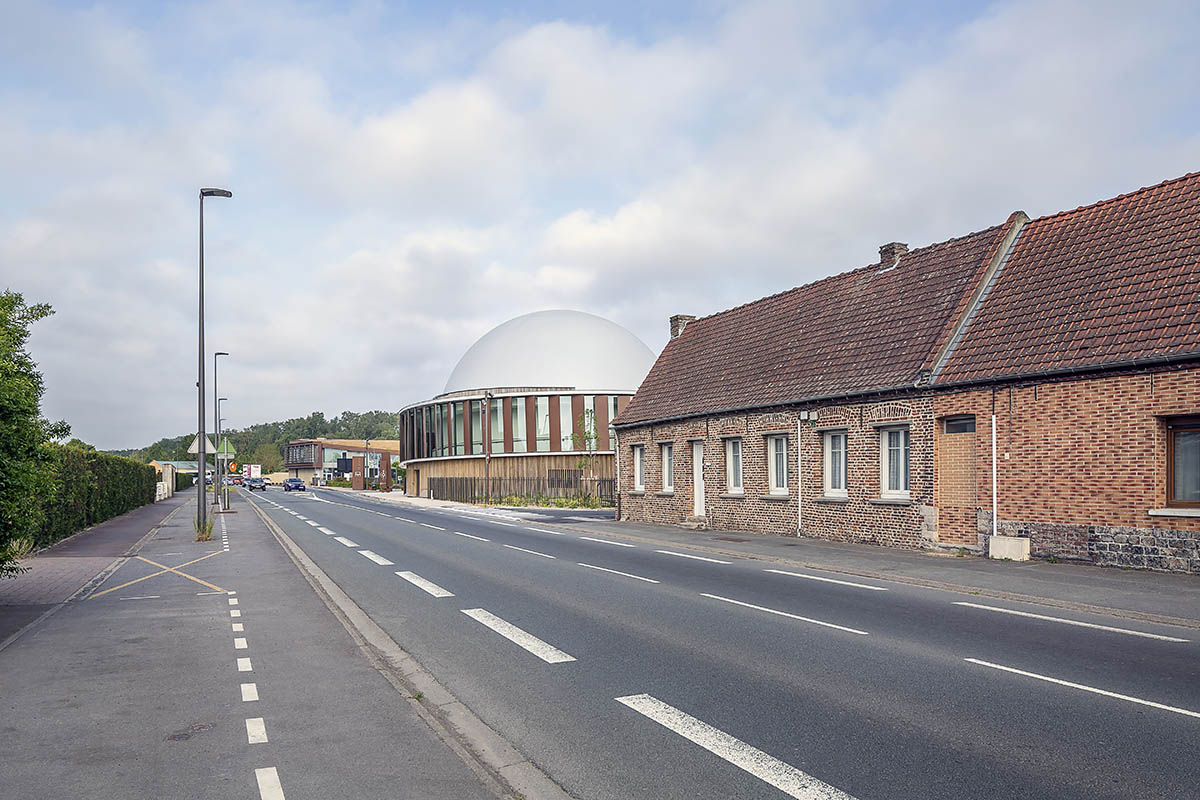
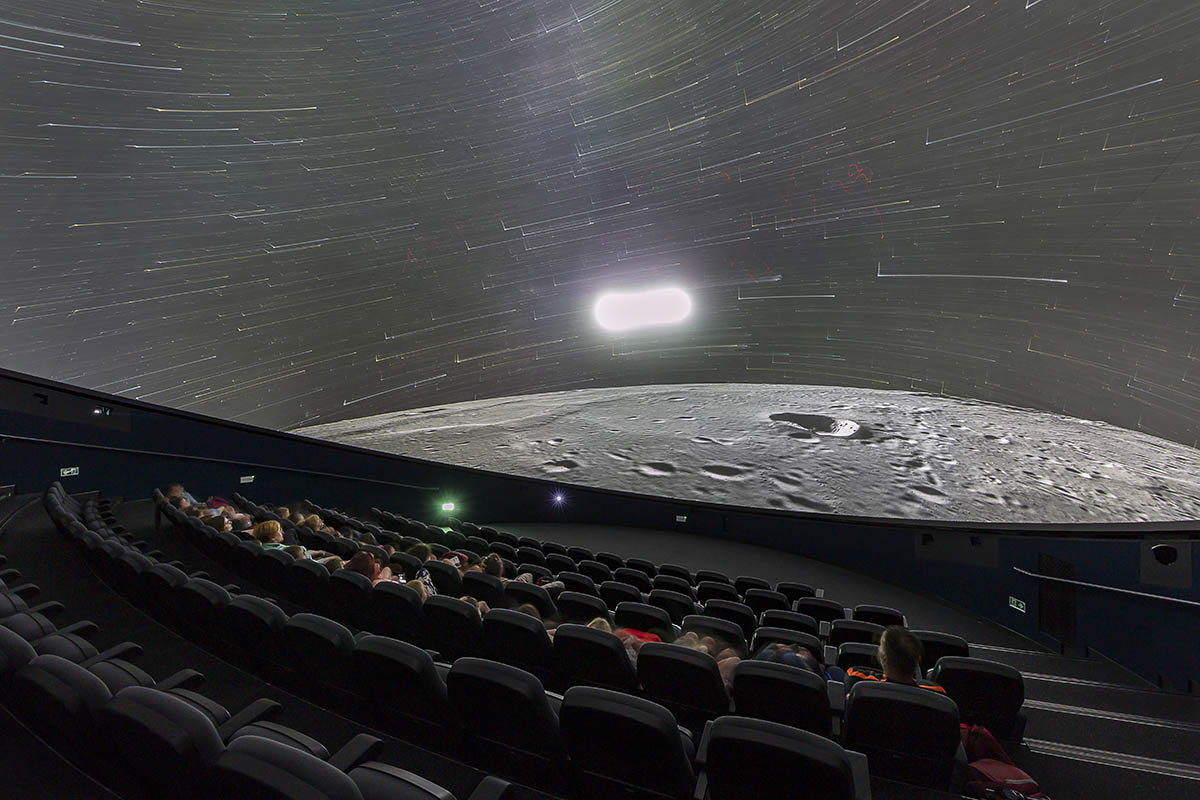
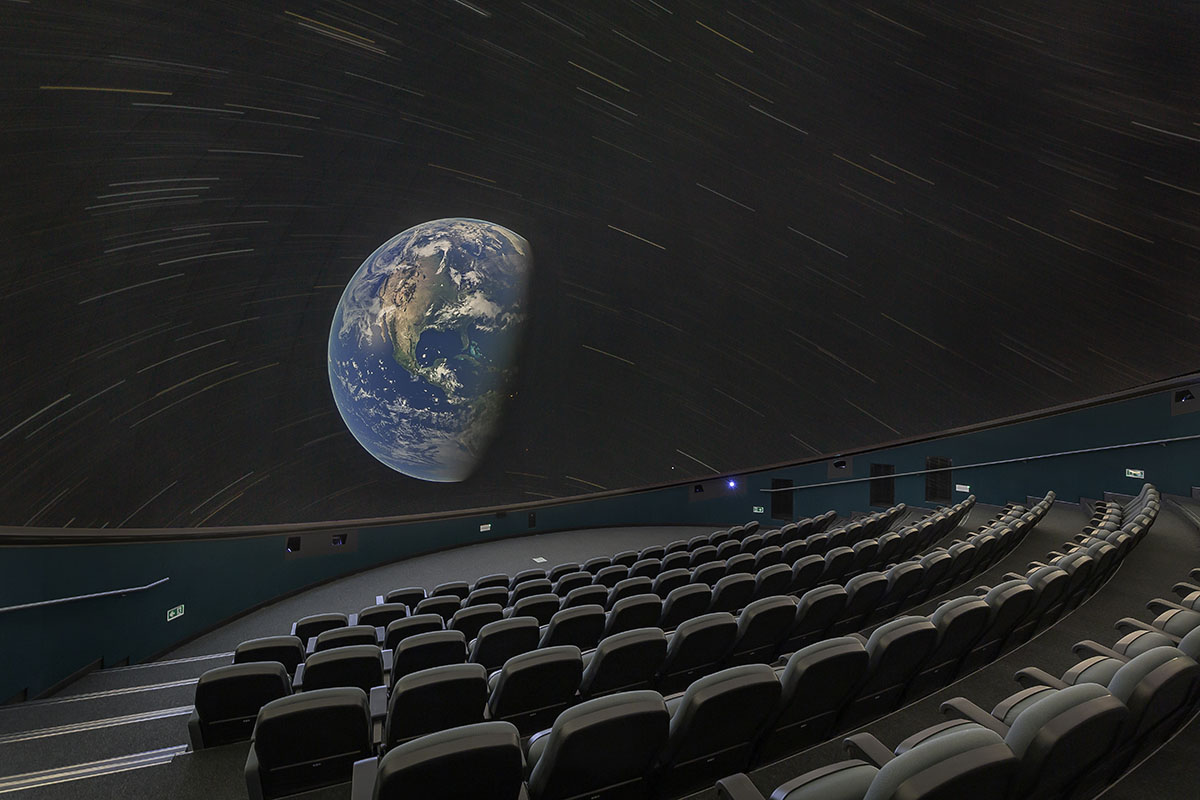
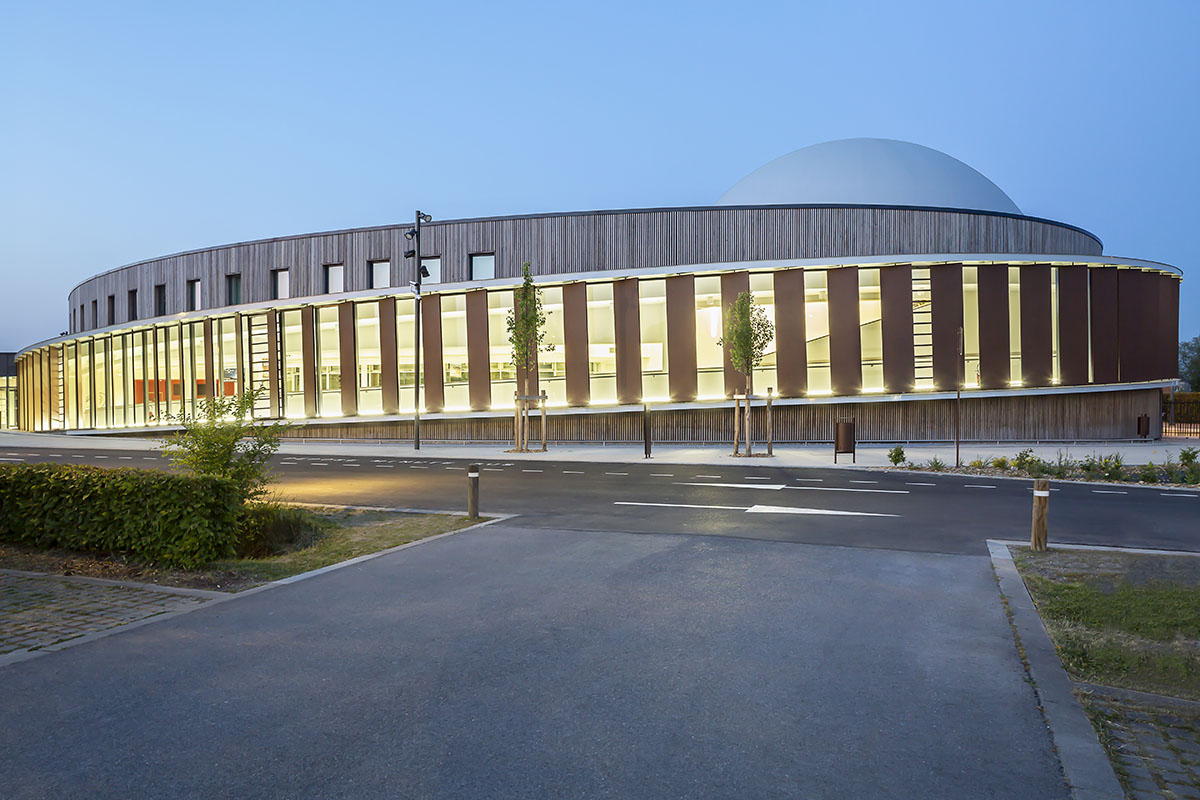
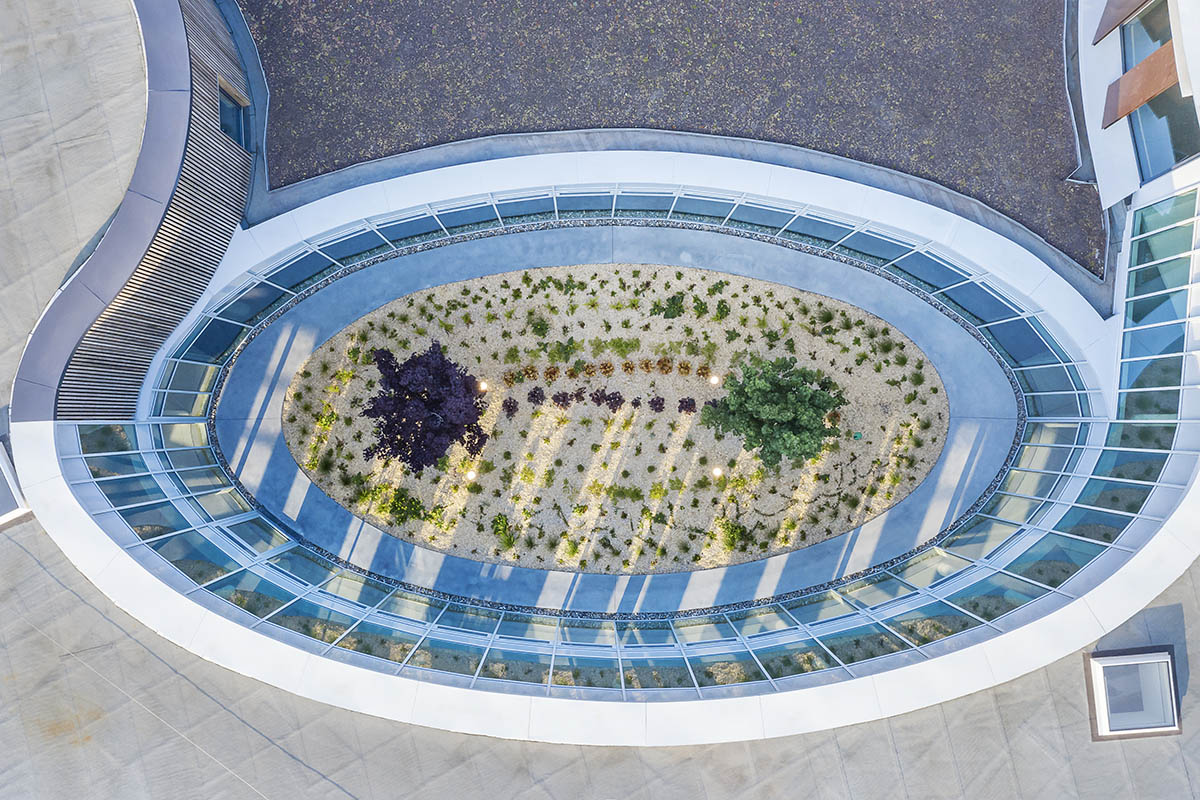
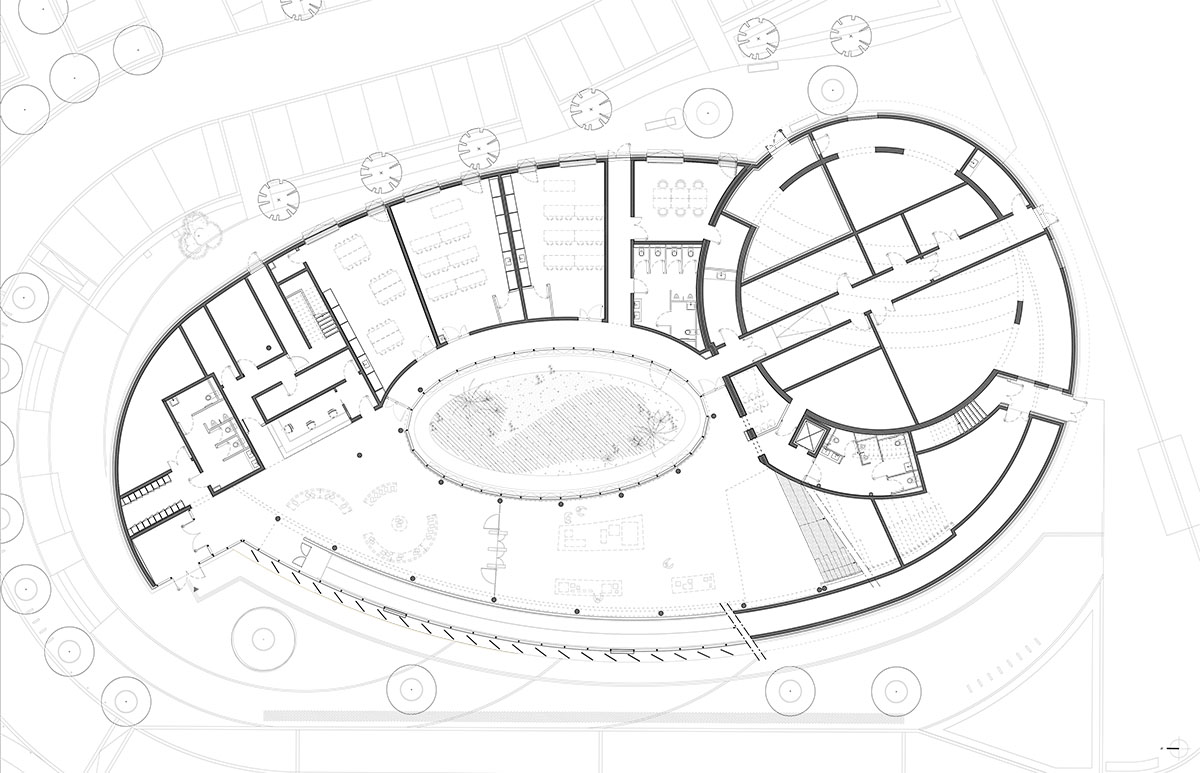
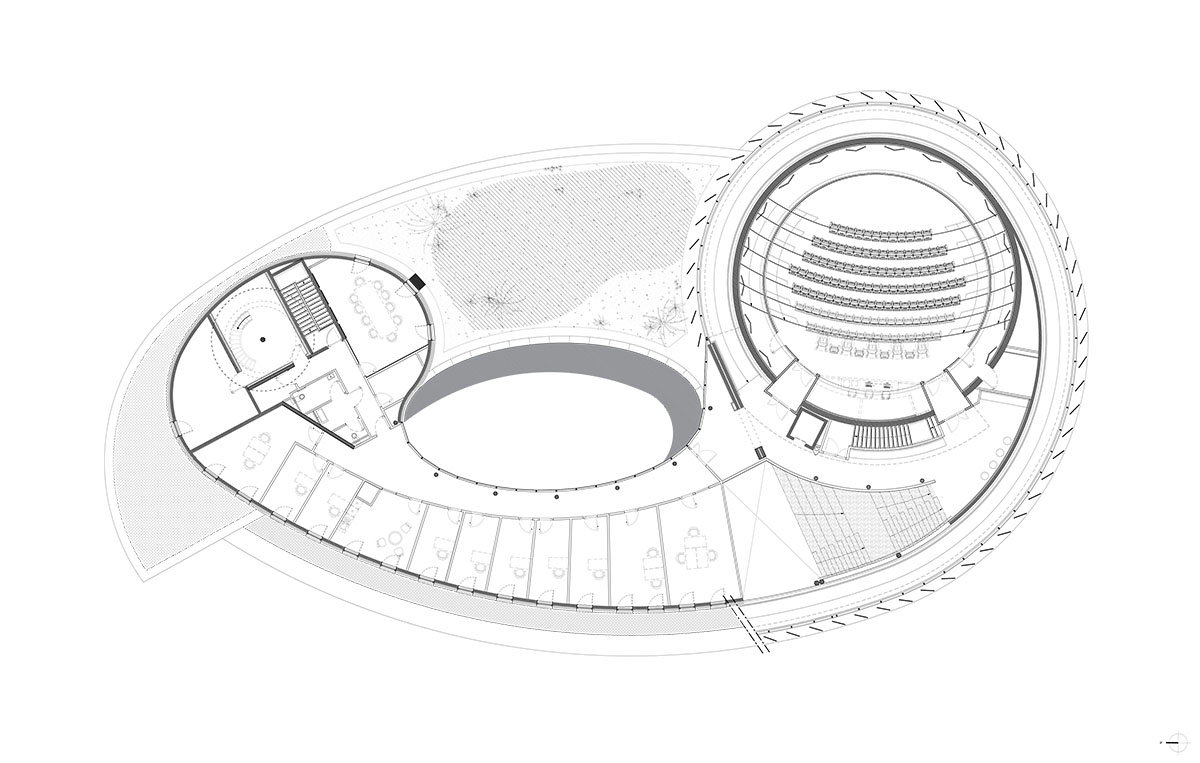
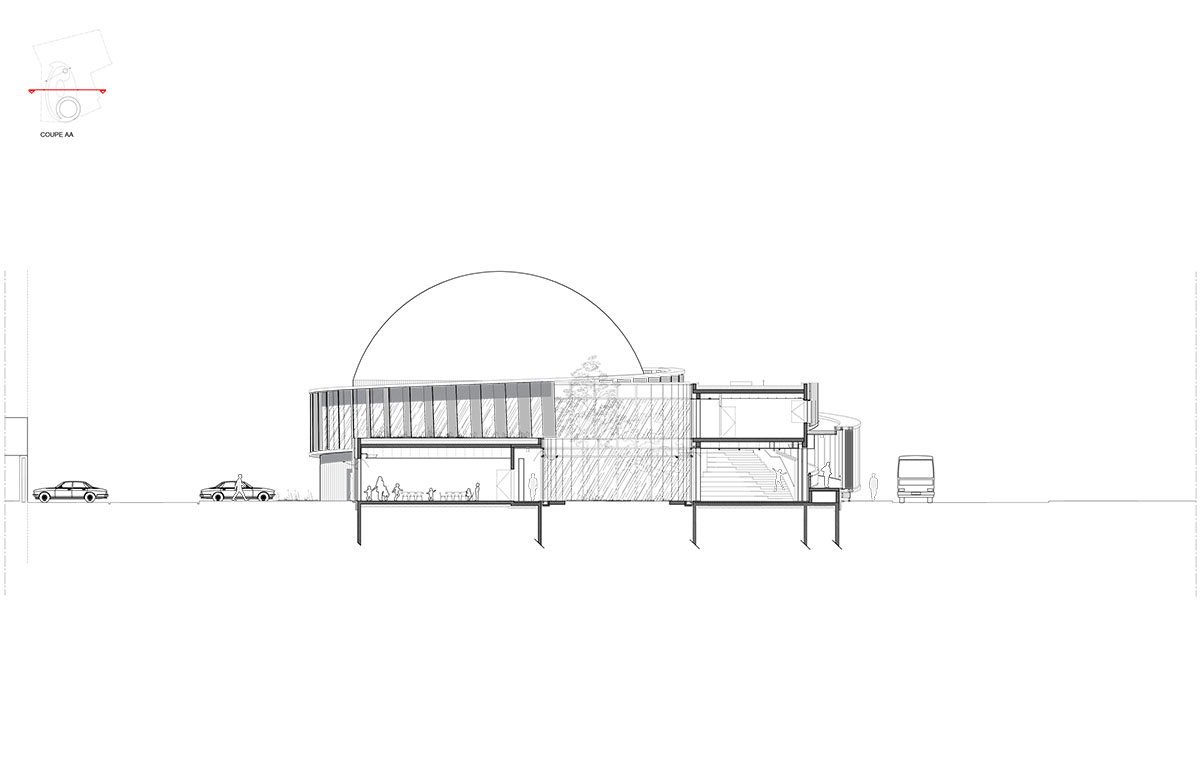
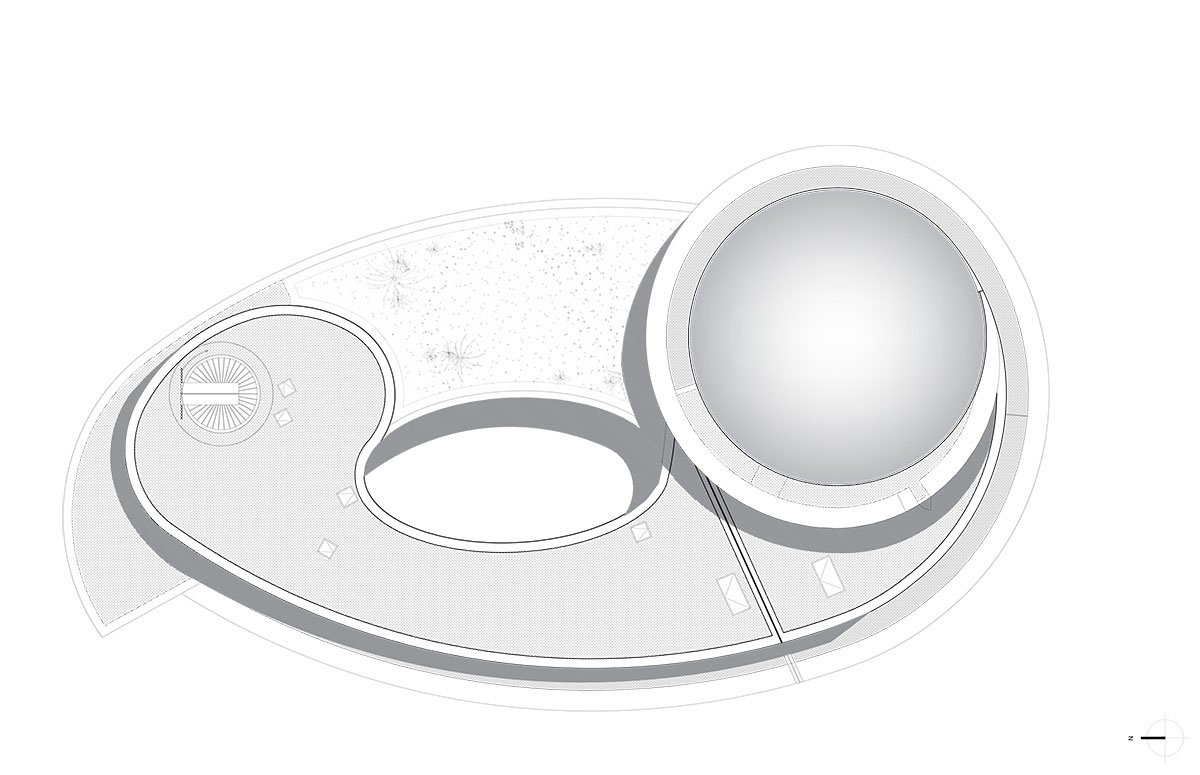
Snøhetta and MQDC revealed design for a large-scale mixed-use development featuring "Bangkok's largest elevated garden" in Bangkok, Thailand.
Snøhetta and Danish interior brand Vipp built nest-like wooden cabins on the Norwegian west coast. The firm is currently working on the new expansion of Museum of Sex in Miami.
Snøhetta, founded in 1989, is led by Craig Dykers and Kjetil Trædal Thorsen. The firm's portfolio spans projects in various typologies and sizes, ranging from architecture, interior design to products.
Project facts
Project name: Orionis
Location: Douai, northern France
Client: Douasis Agglomeration
Timeline: September 2019 – May 2023
Size: 2000 m2
Architecture and Interior Architecture: Snøhetta
Building engineer: CET Ingénierie
Environnemental engineer: Impact Conseil et Ingénierie
OPC: Cicanord
Acoustic engineer: Studio Dap
Landscape: Atelier Silva Landscaping and Snøhetta
All images © Jad Sylla.
All drawings © Snøhetta.
> via Snøhetta
